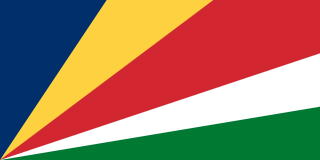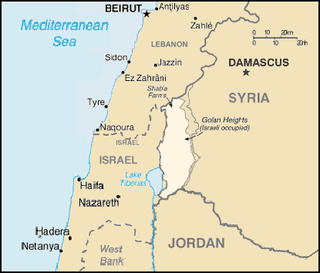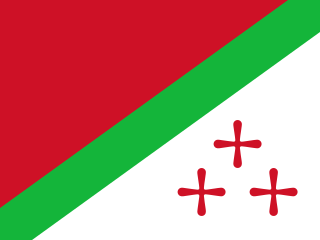The history of the Comoros extends to about 1000 BC when the archipelago was first inhabited. The Comoros have been inhabited by various groups throughout this time. France colonised the islands in the 19th century, and they became independent in 1975.

Seychelles, officially the Republic of Seychelles, is an archipelagic island country in the Indian Ocean at the eastern edge of the Somali Sea. The country consists of 115 islands. Its capital and largest city, Victoria, lies 1,500 kilometres (932 mi) east of mainland Africa. Other nearby island countries and territories include the Comoros, Madagascar, Mauritius, and the French overseas regions of Mayotte and Réunion to the south; as well as Maldives and the Chagos Archipelago to the east. With a population of roughly 98,462 , it has the smallest population of any sovereign African country.

The politics of Seychelles have historical roots in both one-party socialism and autocratic rule. Following independence from the United Kingdom in 1976, Seychelles was a sovereign republic until 1977, when the original President and leader of the Seychelles Democratic Party, James Mancham, was overthrown in a bloodless coup by the Prime Minister France-Albert René. René installed a single-party socialist state under the Seychelles People's Progressive Front which remained in place until 1993, when multiparty elections took place for the first time since independence. Modern day Seychelles governance takes place in a framework of a presidential republic, whereby the President of Seychelles is both head of state and head of government, and of a multi-party system. Executive power is exercised by the government. Legislative power is vested in both the government and the National Assembly.

A mercenary, sometimes known as a soldier of fortune, is an individual who takes part in military conflict for personal profit, is otherwise an outsider to the conflict, and is not a member of any other official military. Mercenaries fight for money or other forms of payment rather than for political interests. Beginning in the 20th century, mercenaries have increasingly come to be seen as less entitled to protections by rules of war than non-mercenaries. Indeed, the Geneva Conventions declare that mercenaries are not recognized as legitimate combatants and do not have to be granted the same legal protections as captured service personnel of a regular army. In practice, whether or not a person is a mercenary may be a matter of degree, as financial and political interests may overlap, as was often the case in all of history.

Durban International Airport was the international airport of Durban from 1951 until 2010, when it was replaced by King Shaka International Airport, 60 kilometres (37 mi) to the north. The airport is co-located with AFB Durban.
Thomas Michael Hoare, known as Mad Mike Hoare, was a British mercenary leader and adventurer known for his military activities in Africa and attempt to conduct a coup d'état in the Seychelles.

France-Albert René was a Seychellois politician who served as the second President of Seychelles from 1977 to 2004. He was nicknamed by Seychellois government officials and fellow party members as "the Boss". His name is often given as simply Albert René or F.A. René; he was also nicknamed Ti France.

United Nations Security Council resolution 497, adopted unanimously on 17 December 1981, declared that the Israeli Golan Heights Law, which effectively annexed the Golan Heights, is "null and void and without international legal effect" and further calls on Israel to rescind its action.
Royal Swazi National Airways Corporation was the national airline of the Kingdom of Swaziland. Headquartered in Mbabane with its operational base at Matsapha Airport near Manzini, the airline was founded in 1978.

The State of Katanga, also sometimes denoted as the Republic of Katanga, was a breakaway state that proclaimed its independence from Congo-Léopoldville on 11 July 1960 under Moise Tshombe, leader of the local Confédération des associations tribales du Katanga (CONAKAT) political party. The new Katangese state did not enjoy full support throughout the province and was constantly plagued by ethnic strife in its northernmost region. It was dissolved in 1963 following an invasion by United Nations Operation in the Congo (ONUC) forces, and reintegrated with the rest of the country as Katanga Province.

The 1988 Maldives coup d'état attempt was the attempt by a group of Maldivians led by businessman Abdullah Luthufi and assisted by armed mercenaries of a Tamil secessionist organisation from Sri Lanka, the People's Liberation Organisation of Tamil Eelam (PLOTE), to overthrow the government in the island republic of Maldives. The coup d'état failed after the Maldivian National Security Service eliminated the rebel leaders of PLOTE. At the realization of the attacks failure, the rebel group hijacked a Maldivian freighter named MV Progresslight and attempted to escape to Sri Lanka. After the rebels escaped, the Indian Navy was called for help and they intercepted and captured the mercenaries and they were brought into custody in an operation codenamed Operation Cactus.
The Seychelles Community in the European Union is composed of former citizens of the Seychelles who now live in the European Union (EU).

United Nations Security Council resolution 591, adopted unanimously on 28 November 1986, after recalling resolutions 418 (1977), 421 (1977), 473 (1980) and 558 (1984), the Council strengthened the mandatory arms embargo against apartheid South Africa imposed by Resolution 418, and made it more comprehensive. Resolution 591 sought to clarify vague terms from previous resolutions on the topic.
Rugby union in Seychelles is a minor but growing sport.

United Nations Security Council Resolution 402, adopted on December 22, 1976, after hearing from the Minister of Foreign Affairs for Lesotho, the Council expressed concern at South Africa's decision to close the border with Lesotho in many areas in an attempt to pressure the country to recognise the "independence" of the bantustan Transkei. After recalling previous resolutions, the Council praised Lesotho for not recognising Transkei and stated it will organise economic assistance to the country from the organisation itself and other countries to help it overcome the blockade by South Africa.

United Nations Security Council resolution 496, adopted unanimously on 28 May 1982, after examining a report by the Security Council Commission on the Seychelles adopted in Resolution 496 (1981), the Council expressed its concern at the November 1981 coup attempt in the Seychelles by foreign mercenaries, including Mike Hoare, allegedly backed by South Africa, and the subsequent hijacking of an Air India plane.

United Nations Security Council resolution 1216 was adopted unanimously on 21 December 1998. After expressing concern at the crisis and humanitarian situation in Guinea-Bissau, the Council called for the immediate establishment of a government of national unity in the National People's Assembly and the holding of elections by the end of March 1999.
Operation Flowers are Blooming was the name of an operation by the Indian Navy to help avert a threatened coup against the government of President France-Albert René in the Seychelles in 1986.

The 1981 Seychelles coup d'état attempt, sometimes referred to as the Seychelles affair or Operation Angela, was a failed South African–orchestrated mercenary takeover attempt in the country of Seychelles.

Skeleton Coast is a 1987 South African made mercenary war film directed by John Cardos in the first of three films for producer Harry Alan Towers. It was the first of Towers' Breton Film Productions.














